The common skin condition isn’t contagious, but it can pop up anywhere on your body during a flare
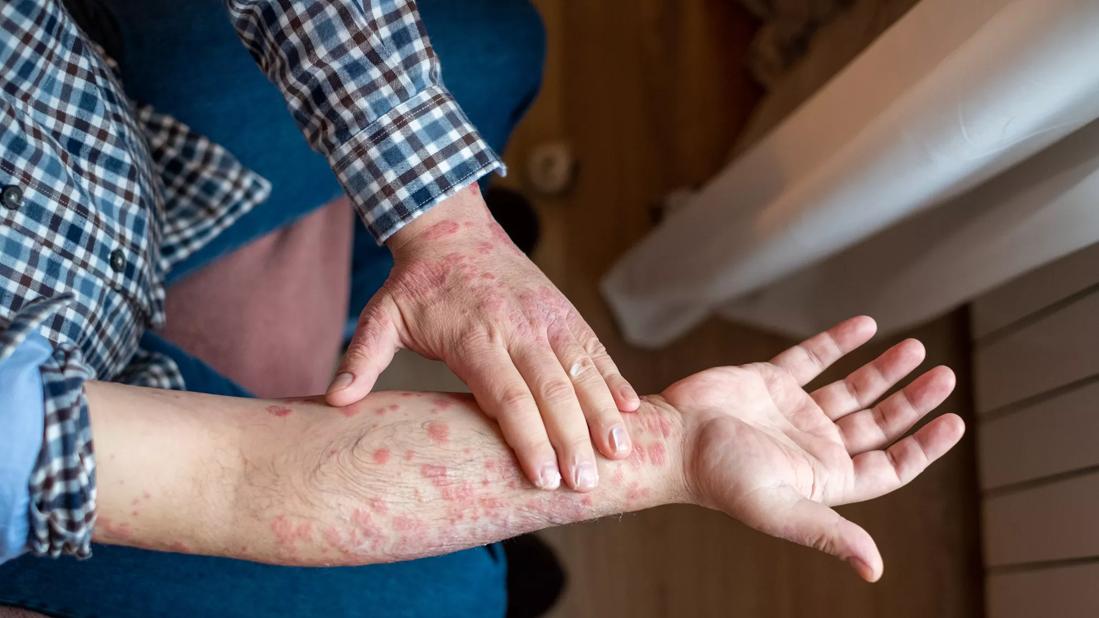
Psoriasis isn’t fun. The autoimmune skin condition is known for red, scaly patches that develop on your skin. These patches, called plaques, can become itchy and cause discomfort.
Advertisement
Cleveland Clinic is a non-profit academic medical center. Advertising on our site helps support our mission. We do not endorse non-Cleveland Clinic products or services. Policy
And while you can learn to manage any flare-ups (when your symptoms become worse), you may be concerned that your psoriasis can spread to other parts of your body or to other people.
So, does or can psoriasis spread?
“Psoriasis is not contagious,” clarifies dermatologist Kathryn Anderson, MD. “A lot of people who have psoriasis are self-conscious about it because the general public thinks that it’s something they can catch.”
But when it comes to your body, if your psoriasis isn’t well-managed you may notice patches and inflammation in different areas of your body. That could include your scalp, genitals, lower back, elbows and knees.
Dr. Anderson explains how psoriasis spreads to different parts of your body and how to manage your condition.
“Psoriasis is a chronic inflammatory skin condition that happens when your immune system produces chemicals called cytokines that lead to inflammation in your skin,” explains Dr. Anderson.
While psoriasis isn’t contagious and can’t be passed to other people, it can spread to other parts of your body.
“Psoriasis can pop up anywhere where you have skin, from the scalp to the toes,” she says.
But this doesn’t happen because you touch one part of your body with a psoriasis patch and then touch another place on your body. Remember, psoriasis isn’t contagious.
Advertisement
It happens because of changes in your immune system that lead to flare-ups.
A flare-up happens when your immune system produces additional inflammatory proteins that cause a buildup of skin cells resulting in red, scaly, itchy patches on the surface of your skin.
So, how can you stop your psoriasis from spreading to other parts of your body? It all starts with managing your condition.
There are certain factors, or triggers, that commonly cause a psoriasis flare-up:
In addition to doing your best to avoid triggers, Dr. Anderson offers the following tips.
Dr. Anderson stresses the importance of working with a board-certified dermatologist.
“Most psoriasis can’t be treated with over-the-counter products alone,” she notes. “Some people can just use topical creams or ointments. But for people who have widespread psoriasis, we can prescribe internal medications such as biologics.”
Not only can dermatologists determine the right course for treating and managing your psoriasis, but they can also answer any questions you have and help you navigate how best to handle symptoms or other situations as they arise.
We know your psoriasis may itch and you may be tempted to give it a scratch. But Dr. Anderson urges you not to scratch and do your best to avoid any trauma to your skin.
“To the best of your ability, it’s important to minimize trauma to the skin whether it’s cancer, sunburns, bug bites, cuts or even just scratching,” she says.
Doing so can lead to Koebner phenomenon, a condition that affects people with certain skin conditions like psoriasis.
“The trauma to the skin can cause psoriasis lesions to occur in these areas,” she continues.
When it comes to applying a topical treatment directly to your skin and psoriasis patches, you have options.
Your dermatologist may suggest topical steroids (also known as corticosteroids), which come as a cream, lotion, gel or ointment. Prescription vitamin D creams, as well as formulas made with retinoids and salicylic acid, have been helpful in keeping psoriasis well-managed.
Keeping your skin hydrated is also another vital way to keep psoriasis flare-ups at bay — especially during cold, dry weather, which is a common psoriasis trigger.
“Moisturizing regularly can help. I recommend using a moisturizer that has a mild keratolytic, an ingredient like salicylic acid or urea that gently exfoliates the skin,” suggests Dr. Anderson. “We don’t want to use an exfoliator or a scrub because that would lead to more trauma to the skin and potentially psoriasis flares.”
Advertisement
Dr. Anderson recommends light therapy for some of her patients. You may start off with treatments at your doctor’s office, using a narrowband UV-B light device. Occasionally, devices can even be used in the at-home setting.
Even natural sunlight may help, but you should do so with caution, says Dr. Anderson.
“Light treatment is immunosuppressive to the skin, meaning it can decrease inflammation in the skin,” she explains. “But that has to be balanced with the risk of sun exposure leading to skin cancer.”
If your psoriasis is extensive enough, your healthcare provider may recommend prescription medications like methotrexate, cyclosporine (which suppresses your immune system) or a biologics medication, which decreases the aspects of the immune system that lead to psoriasis.
“More recently, we’ve used immunosuppressant medications called biologics to treat psoriasis, as well as psoriatic arthritis,” says Dr. Anderson. “They alter the inflammatory reaction that causes psoriasis. We also have new oral treatments for psoriasis that alter the inflammatory process that leads to psoriasis.”
Your healthcare provider will determine what type of medication is best for you. Dr. Anderson says you should bring an updated medication list to your doctor appointments so your doctor has a complete and accurate list of what you’re taking.
Advertisement
Stress can make your psoriasis worse — it may be due to an increase in cortisol, which leads to inflammation. To help limit or reduce your stress, you may want to try complementary and alternative therapies such as acupuncture, yoga and meditation.
“Studies have shown that people with psoriasis have a lower quality of life,” says Dr. Anderson. “Activities or hobbies that can decrease stress and improve your quality of life are important.”
It can be difficult to not be embarrassed by your psoriasis and what others may think if they notice patches and inflammation on your skin.
But remember: Psoriasis isn’t contagious.
And you can help manage how often you experience psoriasis flare-ups through a combination of treatment and lifestyle changes.
Advertisement
Learn more about our editorial process.
Advertisement

Moisturize often, take oatmeal baths, use Epsom salts and follow a healthy diet to help reduce your symptoms

A well-balanced diet with anti-inflammatory foods can help reduce flare-ups and severity of psoriasis symptoms
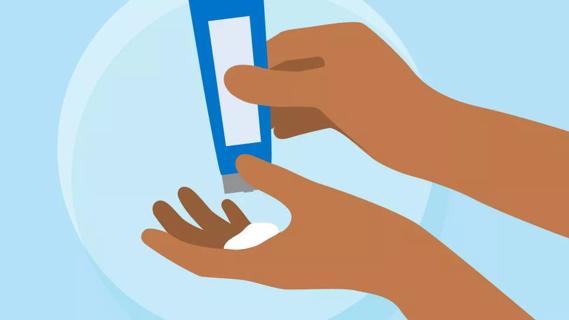
Caused by inflammation, psoriasis itch can be managed with a variety of treatments, like moisturizing and taking cooler and shorter showers
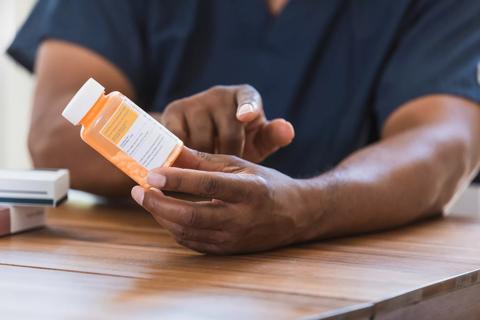
Stress, infections, skin injuries and environmental factors can trigger an onset of psoriasis symptoms
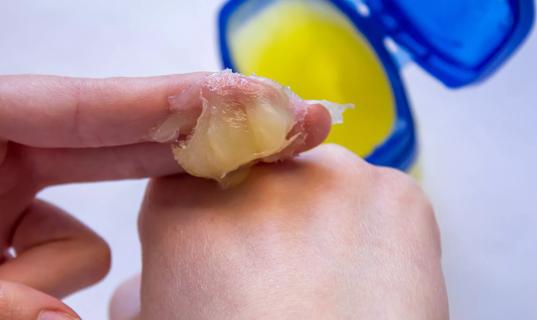
Learn your triggers, stay moisturized, quit smoking, prioritize sleep — and avoid scratching

Stick to your treatment plan, but keep your provider updated on any new symptoms or triggers

An expert explains the difference between the two skin conditions
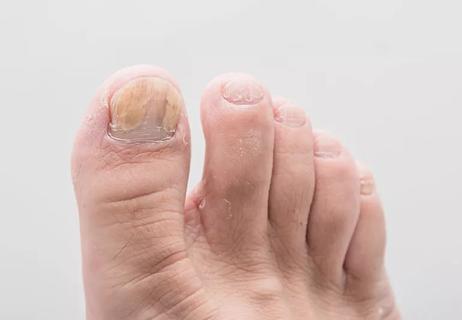
Nail psoriasis and nail fungus have a lot of similarities, but one is a result of an infection and the other is inflammatory

The tropical fruit is a good source of antioxidants and vitamin C

Most people fall asleep within 10 to 20 minutes, but if your experience is different, adjusting your sleep schedule may help

Exploring your hidden side can lead to better understanding of what makes you tick